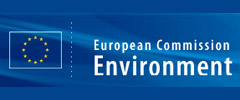Environmental taxes in Georgia
Support Georgian Greens action against cancellation of taxes on environmental pollution. Send a letter to the president.
13.06.2005 |Sascha Gabizon
Mr. Micheil Saakashvili
Fax: +995(32)99-92-00
E-mail: pr@president.gov.ge and alana@president.gov.ge
Dear Mr. President,
Despite the many efforts of the Greens Movement of Georgia / Friends of the Earth, the Georgian parliament has passed the new Tax Code, which has effectively led to the cancellation of taxes on environmental pollution. This is an unprecedented, anti-ecological, move in terms of global environmental policy, as well as European policy.
The environmental tax, which has been in effect since 1993, has played a significant role in strengthening ecological discipline, as the overall state monitoring network was destroyed. Providing an amalgamation of administrative and economic tools, it automatically supported the self -monitoring of producers to raise their environmental liability. Consequently, the expenses on environmental protection were soundly increased.
Environmental statistic research (made by “Eurostat”) shows that expenses spent at environmental protection in 2002 came to 50 million GEL, in which the government’s share was only 0,01%. The following taxes were introduced in Georgia:
- air pollution tax
- water pollution tax
- fuel production and import tax
Polluters, poisoning air and water, paid environmental taxes. Within the limits established by the Ministry of Environment of Georgia, taxes were levied on hazardous substances. In addition, polluters had to pay five times more above the established limits. Taxes were different in relation to the various environmental situations of the different regions in Georgia. Incomes from the environmental taxes increased every year: while in 1995, the state budget received only 130 000 USD from them, in 2002, the taxes brought in up to $8 million. These taxes functioned as a sound environmental tool, implementing the principle established at Rio de Janeiro (1992) and Johannesburg (2001) – the “polluter pays”!
In this respect Georgian legislation was one of the best in Eastern Europe.
But instead of continuing to act as an instrument for improving the environmental condition and bringing investments into the environmental fund, the law was recently cancelled in the new Tax Code.
As a result, the foundation of Georgia’s environmental pollution management strategy was obliterated. This will further impede the, already vulnerable, population and environmental situation of Georgia.
Every year 1,2 million tons of hazardous substances (445 kilo per habitat per year) are emitted into the atmosphere. Rivers and lakes are contaminated with 408 billion liters of polluted water (90 liters per habitat per year) due to irrigation of agricultural lands and pastures. According to the new Tax Code, industrial enterprises which seriously damage the environment walk free from financial liability. Such industries are: mining industries, cement and chemical industries, oil and fuel refinery factories etc.
The policies established under the new Tax Code are violating the “Agreement Between Georgia and the European Union on Partnership and Cooperation”, as well as with the international environmental conventions ratified by the Georgian Parliament, the “United Nation’s Framework Convention on Climate Change ”, “the Kyoto Protocol”. The Tax Code consequently eradicates the fundamental international principle the ”polluter pays”.
We consequently express our serious concerns and frustrations with the new Tax Code, as well as the subsequent disregard for national and international environmental agreements and principles. We demand immediate amendment to the Tax Code to include taxation on environmental pollution. In addition, we insist on the establishment of environmental funds for the collection of tax revenue from hazardous substances, revenue which subsequently should be spent on environmental protection.
Sascha Gabizon, Director
Gero Fedtke, Caucasus and Central Asia Coordinator


































